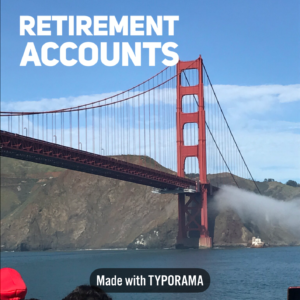This makes Cents…
Thinking about investing but not sure where to start? Ready to move beyond just throwing your money in the bank and watching it grow slower than the hair on Uncle Joe’s head?
Because there are so many investment options available – some simple, but many complicated – let’s start by giving you a working definition of these investment options to help you create a Centsible Plan.
Stocks
When you buy a stock you are buying a share of the company. You are now a partial owner to that company. Owning shares entitles you to receive part of the company’s profits. The price is affected by supply and demand. Individual stocks have risk but can also produce high returns. For more information on stocks, click here for our blog article: What is a Stock?
Bonds
A bond represents debt. You are giving the company a loan. As the person buying the bond, you are lending money to the person selling the bond. At the termination of the bond the initial loan amount is repaid to you, the lender. There are 3 main types of bonds: Corporate Bonds- issued by the company; Municipal Bonds- issued by state and local governments; and Government Bonds- issued by the U.S. Treasury. There is typically less risk than stocks and therefore also lower returns.
Mutual Funds
A basket of stocks and/or bonds managed by a money manager. You are letting a professional pick your investments. Different mutual funds will invest in different types of stocks and bonds. The risk will depend on the type of fund. They only trade once at the end of the day.
ETFs (Exchange Traded Funds)
Exchange traded funds are similar to mutual funds in that they are basket of stocks or bonds. Most ETFs are designed to track the performance of an index, such as the S&p 500. Typically cheaper than activity managed mutual funds. Trades throughout the day.
CDs (Certificates of Deposit)
A savings account with a fixed length of time and a fixed interest rate that you are guaranteed. They can range from months to years. Normally, the longer the term the higher the interest rate. If you take the money out early, you will pay a penalty.
Money Market
When you have money in a brokerage account that is not invested in stocks, bonds, mutual funds, or ETFs, it sits in a Money Market Account as cash. The money market is invested in short-term highly liquid instruments (such as short term CDs). They have a relatively low risk. They always cost $1/share.
Investing doesn’t have to be complicated. Hope this helps give you a basic understanding of some of the investment options.
Disclaimer: The information on this blog is for educational and informational purposes only. We recommend you consult with a financial professional before making any financial decisions.





Kylan
12 Jun 2020Great article and definitions! I’m a complete newbie when it comes to investing although I have been trying to dip my toes in. Was confused about what ETFs are but now a better picture. Thank you!
Melissa
13 Jun 2020There are sooo many things to consider when investing.. Thanks for this breakdown!
Tiffany
14 Jun 2020This a great quick reference as to what each type of investment is an how it works. Thanks for breaking it down! Great place for beginners to start!
Sabrina
8 Aug 2020Great definitions for all these investment choices. Great for newbies trying to get started. Thanks for sharing.
Suz
8 Aug 2020Very timely!
With 4 overseas trips cancelled since March, and my reluctance to plan any big trips right now, cash has been piling up in my bank accounts, and I’ve been thinking that it’s ridiculous to keep it there when I don’t need immediate liquidity.
I have investments with a financial advisor (mostly mutual funds and ETFs, very moderate risk), and didn’t want to put more there. I looked into creating a CD Ladder (buying one 6-month, 12-month, 24-month, 36-month, 48-month CD, then as they mature, decide what to do with the cash), but the interest rates are still ridiculously low.
So…I started to think about dabbling in the stock market; getting in on some “sexier”, riskier stocks thinking that maybe I’ll gain a big win! Plus, it’d give me something else to think about…
I already had a Schwab account, but only used the checking account’s debit card for no-cost ATM withdrawals overseas. Then, Schwab started advertising “stock slices” (fractional shares), so I decided to do that. I got AMZN, MSFT (think they’ll get TikTok??), BBY, GPC, and TSCO so far.
What do you think? Any suggestions for about $1500? Wish I had an insider to give me stock advice! So excited about how the market is doing!
Alicia
9 Aug 2020I love that this information is broken down into layman’s terms so it’s easily understood for the new investor. Thanks for helping to educate people and empowering them to tame their finances!
shane
9 Aug 2020Great explanation of the various investment options. Sharing this with my niece.
Jessica
10 Aug 2020Thank you. It’s a little embarrassing that I am little lets say “undereducated” in finance. I appreciate this beginners guide.